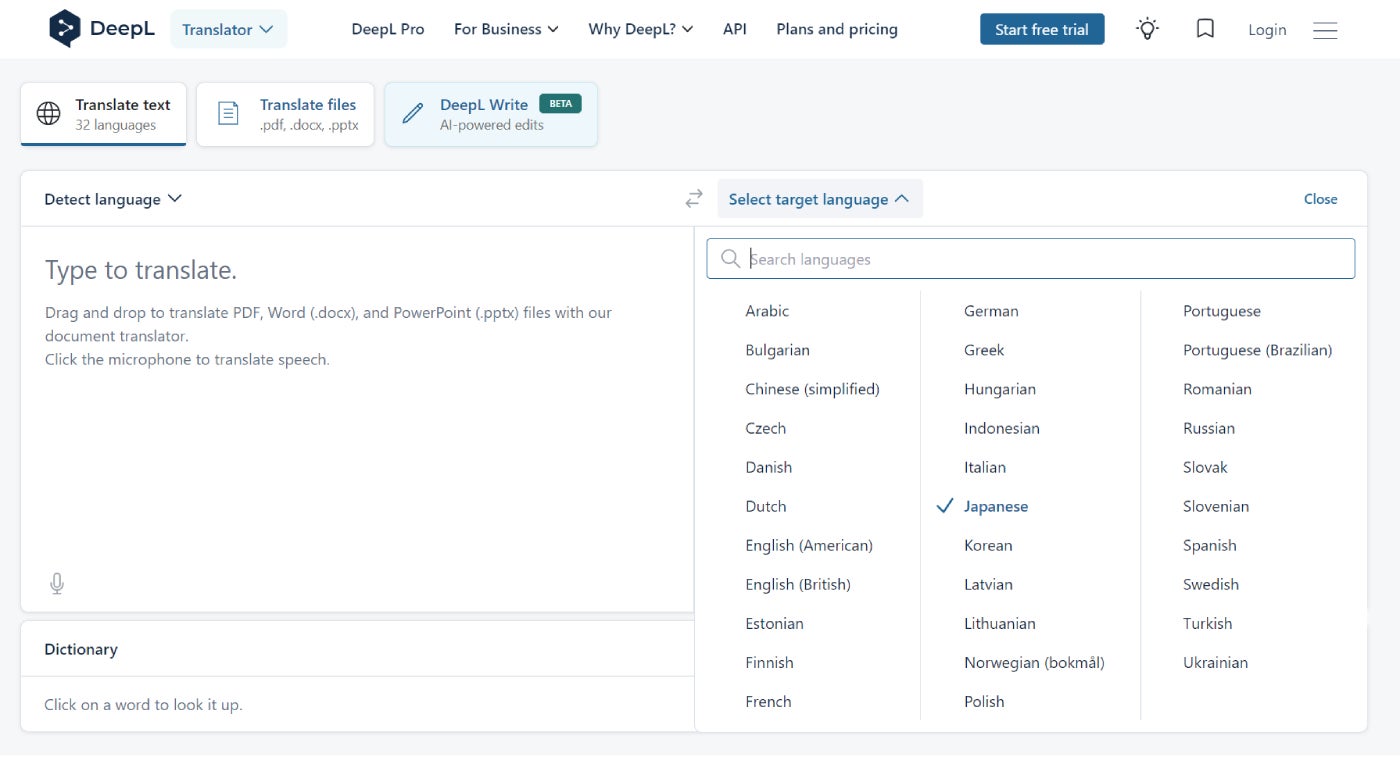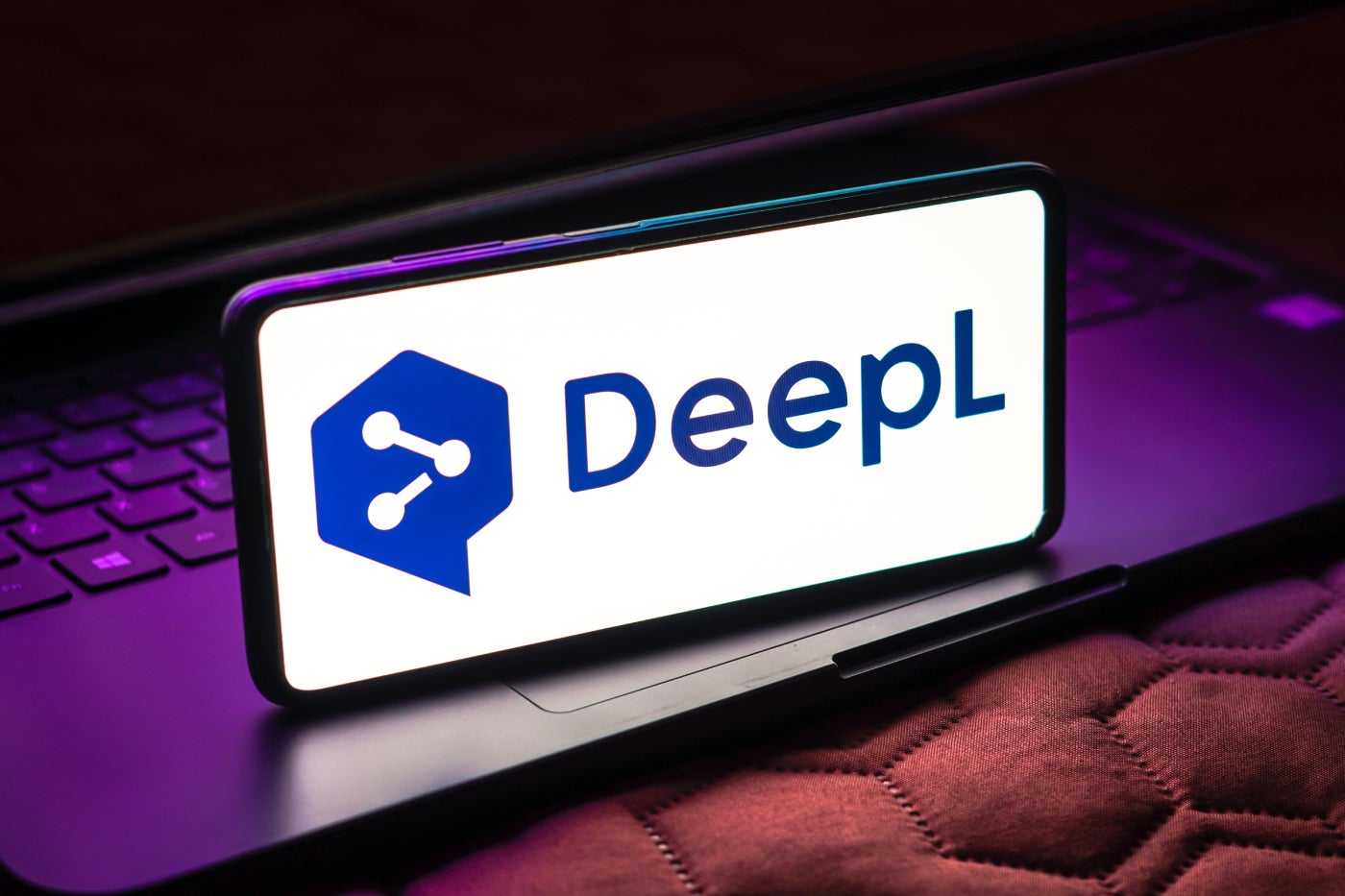Tech employees in APAC know working in the region can involve struggles with language. While most cross-border business is conducted in English, there can still be difficulties communicating, which can lead workers to turn to offerings like Google Translate or ChatGPT for help.

The same goes for enterprises looking to win business in the languages of the region. Jarek Kutylowski, founder and chief executive officer of DeepL, said the firm’s natural language processing AI model offers natural language translations in 32 languages, thanks to years of development and fine-tuning since launching in Europe in 2017.
With additional APAC languages on its roadmap for 2024, DeepL is expanding its footprint into Australia and Singapore, with key business use cases including translation for cross-border business growth. Its Pro subscription (starting at US$8.74 per user per month, rising to US$57.49 for an Ultimate package) and API Pro (beginning at $5.49 per month) allow businesses to translate documents at scale or integrate translations within their workflows.
DeepL is expanding its APAC languages and markets
Founded in Germany, DeepL’s globalisation drive saw it choose Japan and South Korea as its first markets in Asia. This was due to the countries’ strong economies and business connections with the rest of the world, as well as significant language barriers, which supported high volumes of translation use cases.
DeepL’s APAC push will see this market presence expand to Australia and Singapore. With a number of local languages under its belt, including Simplified Chinese and Indonesian, in addition to English, Japanese and Korean, Kutylowski said the firm was looking at adding “some of the bigger Asian languages where we don’t have coverage yet” soon.
SEE: How Australia is adapting fast to the world of generative AI
With over 900 employees globally, DeepL is currently used by 100,000 businesses and organisations worldwide, in addition to millions of individuals. With a growing business user base in Japan and South Korea, DeepL hopes its regional expansion will add to its revenue base of 1 million paid licenses.
DeepL’s model is trained for natural language translations
DeepL’s focus on providing natural language translations comes down to the difference between translation “accuracy” and “fluency” in language communication, according to the company.
“In a business setting, one main aspect is whether something I have written is correct. But it is not only correctness businesses want in communication; they want to persuade, motivate, communicate clearly and influence in the languages they communicate,” Kutylowski said. How native it feels, how natural, is super important.”
How DeepL achieves natural language translations
DeepL achieves a high level of natural fluency in target languages in two main ways:
- DeepL was one of the first companies to bring AI-based neural machine translation to the market in 2017. Since then, it has been active in academic research to ensure its models were not just translating but expressing themselves naturally in a target language.
- DeepL fine-tunes its AI translations by engaging more than 1,000 native-speaking trainers globally. They review the outputs that are being created by the model, and are able to train the model on how it can express itself more naturally in their language.
DeepL has Pro and API subscriptions for business translation
DeepL is available as a free web application on its website (Figure A) and can also be used as a browser extension. However, for businesses, DeepL’s growing presence in APAC is ultimately aimed at driving interest in DeepL Pro and API Pro subscriptions, which both offer advanced features designed to help local businesses scale and integrate translation securely.
Figure A

In addition to natural language translations, DeepL’s Pro subscription offers:
- Data security: DeepL deletes all the text it processes from DeepL-operated servers after a translation is completed. The company promises that no customer text is ever passed to third parties or used as AI training data.
- Unlimited text translations: The DeepL Pro offering includes unlimited text translations. This includes the ability to translate more documents with larger file sizes, while preserving the original document formatting.
- Customisation control: Businesses can tailor AI outputs to maintain brand consistency and standardise messaging through customisation, which includes having control over things such as specified brand terminology.
DeepL’s API Pro subscription offers access to DeepL’s REST API along with data security and no volume restrictions, though users pay a usage charge of US$25 per 1 million characters. The subscription allows businesses to integrate DeepL’s translation functionality with things like websites, apps and internal communication tools with a few clicks.
DeepL has options for integrating within customer and user workflows
There are a lot of possible use cases for DeepL. “Potentially, there are so many different jobs that are being done by our users. They might be writing in Gmail, writing a note in Salesforce, or creating a document in Microsoft Office — the use cases are very broad,” Kutylowski explained.
The translator can be used on the website itself. However, it can also be accessed through browser extensions, which can immediately translate anything entered into a web browser that works with common software tools like Google Docs, Microsoft Office or Salesforce.
DeepL also works with customers to integrate translations into their own systems and workflows. Kutylowski gave the example of companies where DeepL is integrated and works in the background of customer service centres, providing customer service with instant translations.
Two typical business use cases for DeepL’s translation products
DeepL is seeing two main groups of business use cases for its subscription offerings.
1: Businesses seeking to enter new markets in new languages
Companies that want to expand into new markets in non-native languages are able to use DeepL to support their activities. This can mean not having to immediately hire translators, or onboard agencies, representatives and customer support agents who are fully fluent in the native language.
“You can take your existing team and equip them with a tool that helps them to talk to customers or potential customers, and use this to enter new markets,” Kutylowski said. “For example, it can go as far as pre-translating whitepapers or materials for customers to get onboarded on their own solutions.”
2: Internally within international organisations with language barriers
Some multi-jurisdictional businesses find language barriers a problem internally. Kutylowski said the tool can make sure daily communications like emails are written quickly in a native language and translated immediately, with less effort and time necessary for users.
